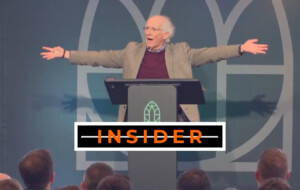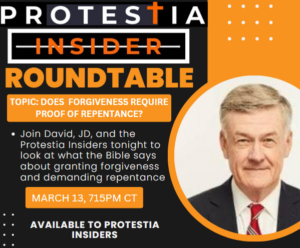
The Todd White “Expose” is a Discernment Loss
The recent “expose” by YouTube apologist Mike Winger of charismatic charlatan Todd White’s abhorrent personal behavior may seem like a big win for biblical discernment. It is not. Instead, it reveals that the Carousel of Huckster Charismaticism will continue to turn even if Mike Winger can get Todd White to











